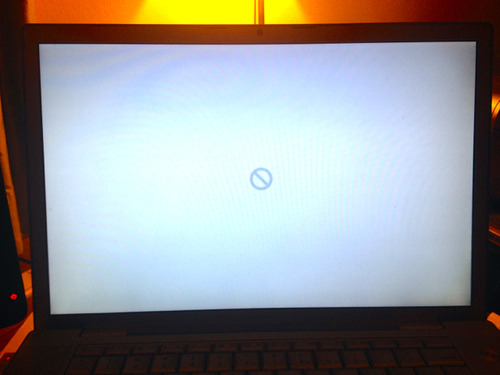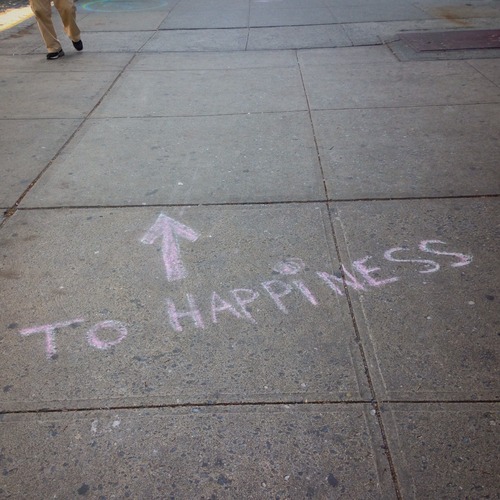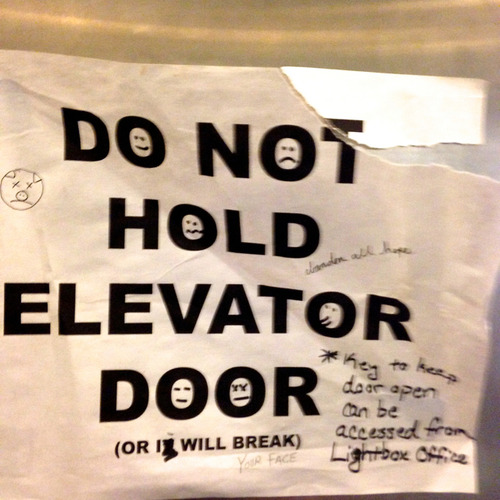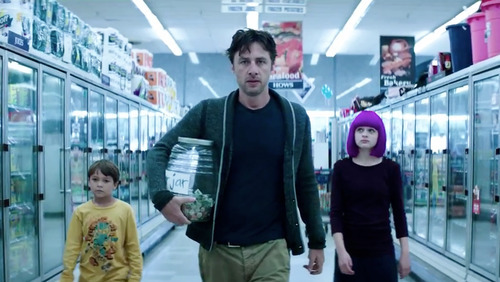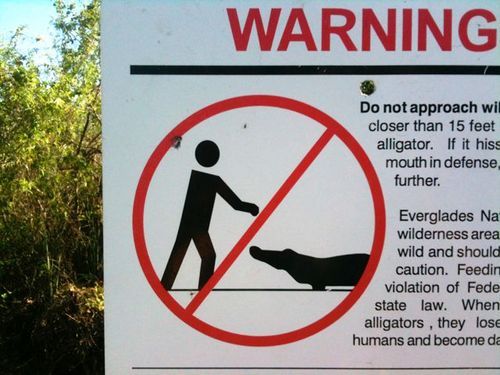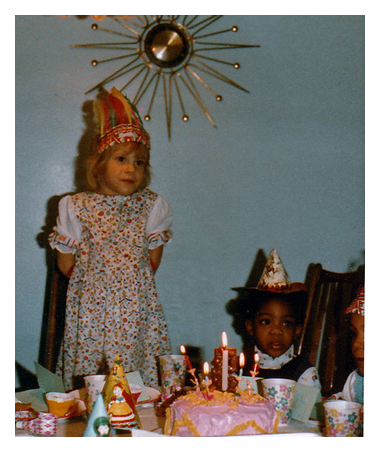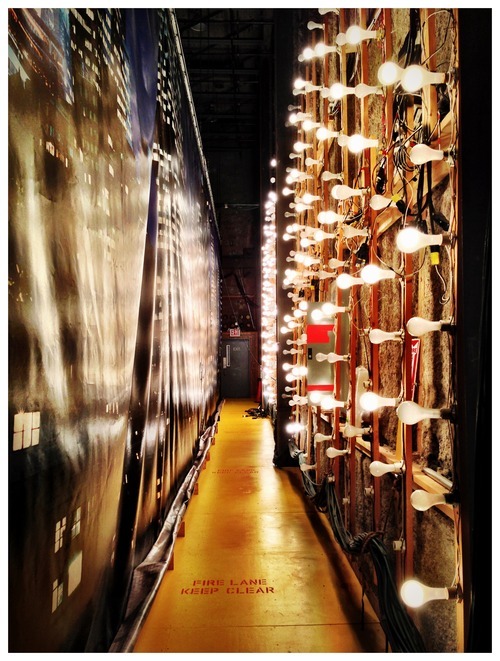
The other day, I read this article in The Economist about how other business industries should emulate Hollywood. My response was, of course, BWAHHAHAHAHA, but it was more insightfully put into words by a commenter with the handle The Marksman who, unlike the author of the original article, is actually in the industry. You should read the entire comment yourself, but it starts off with, “I can’t stress enough what a completely f-ed up industry this is, and how NO ONE in their right mind should attempt to copy it, much less ‘learn’ from it.” And it only gets more choice from there.
I was thinking about this because I worked the other day with Hugh Jackman, and I have to say, it was a delightful experience. He was everything that you’d hope a star that you have seen and enjoyed on the big screen would be: nice, at times even charming, very professional, and just, how can I say this…normal. And happy. He was doing a Japanese commercial where he had to spend the day in front of a green screen, go through four costume changes (one of them involving a fairly ridiculous beard, mustache and floppy hat), and saying things in phonetic Japanese that he didn’t fully understand (while he’d received a translation of the dialogue, trying to get details about line readings from the director, who spoke no English, proved somewhat difficult). Nevertheless, he seemed to treat the experience with enough seriousness to perform as he was asked (and even care about the sound, asking me if it was going to be okay for us when there was a loud fan pointed at him when he was supposed to be on a boat) but enough levity at the absurdity of it all to not get frustrated when he had to do the same thing ten or fifteen times for reasons that weren’t entirely clear. The man seems to have it all in perspective.
It’s strange that I would find this unusual enough that I feel it deserves a mention, but there you have it. It’s not that I blame celebrities, entirely, for not generally being all of those things — nice, happy, professional, normal. Our culture, by the value it places on fame purely for fame’s sake, sets famous people up to be nasty, miserable, demanding and weird, because nobody can possibly deserve the attention and adulation that they receive. So the fact that you are one of the people receiving it means that you feel either completely unworthy of it, which makes you believe that you’re a fraud and therefore have to work extra hard — even, or perhaps especially, if it means terrorizing those around you — to maintain the illusion that you deserve all that bullshit; or worse, worthy of it, which means that you are insanely entitled. Or possibly both things, either at the same time or fluctuating wildly between the two. So it’s no wonder we have so many fucked up celebrities who often turn to substance abuse to help cope with the identity crisis of, “Am I a fraud or am I a god?” With the entire world treating you like you are one or the other – since, by the way, they all think that they know you – I’d imagine it’s extremely hard to remember that you’re just a human being.
What’s funny is that the majority of actors, those who are at the bottom of the totem pole of fame, are among the least entitled folks you will ever meet. These are people who don’t even seem to think that they are entitled to be treated like people. Case in point: the actor I worked with a couple of days before I worked with Hugh Jackman, on another commercial. This actor said to me, at one point during the day, “Your job must be hard,” to which I replied, “Your job is hard too,” and I was not just blowing smoke up his ass (because I really didn’t have to), I meant it. If you think it’s hard for an actor to perform a hundred lines, try two for an entire day — TWO — in various permutations for about six hours. And boy, were there permutations. As is typical in commercials, the director got into the minutia of the minutia.
“Can you say this word with a smile, or a little laugh, but then get serious when you get to this word?”
“That was good, but can you add that gesture with your hand on ‘a lot’?”
“Okay, now a little less with the gesture.”
“Okay, now no gesture.”
“Okay, now with the gesture again, but more serious immediately after ‘a lot.’”
And this guy did it, over and over again, with no complaints. It was a mystery how these tiny changes could make any difference to anyone watching the final, 15-second ad. I also was amazed at how the actor could even make sense of what he was saying any more after hour one, much less take direction about it, because it was all completely meaningless gobbledygook to me at that point. I didn’t know how he was managing to put any emotion at all into the lines, with every single syllable and micro expression micromanaged beyond the point where one could expect there to be any acting involved on his part. But still, this guy pulled it off, and he’s a low-enough level actor that he was probably grateful to be doing a stupid commercial – this, mind you, after the similar, prior crap, including the audition process, he must’ve had to go through to get the part in the first place. Auditions are by their very nature humiliating, in that you are basically performing before a small panel of people who are giving you things to read and do at their whim, then staring at and judging you as you do them (when they’re even paying attention and not looking at their phones), and that you often are part of a giant group of nobodies (name actors generally don’t have to audition) competing for the same part — like a local commercial, or even a student film (I received about 800 head shots for my thesis film. 800.)
This what’s so crazy about acting. You are either the lowest of the low, literally pouring your heart out so that you can basically be abused by people who really don’t seem to understand what your job is and think that you’re some kind of machine who they can adjust and readjust with a blunt instrument to different settings until they get it exactly the way they want it (something one can’t even do with most machines), while in reality you must actually be a person using your body and thoughts and emotions to crank out someone else’s often ridiculous dialogue and make it real enough that an audience will actually believe it. Or you’re the highest of the high, so high that nobody would even dare to ask you to act, might even be scared to because it would cost them their job, and that everybody will basically get you anything, without limitation, that you want. It might even be in your contract. And it’s partly the disgusting hazing ritual of how those at the top treat those at the bottom that keeps the system going — because those who do succeed have to believe in, uphold and justify the system that got them there, and want to make everyone else go through the shit that they went through, to help convince themselves that their suffering was necessary and made them who they are and therefore entitled to all the shit that they have.
It’s also just one more way in which Hollywood is not just gross but acts as a gross and horribly deformed reflection of our culture, which it, of course, feeds. Thanks, in large part, to reinforcement from a media which simplistically portrays every story as a classic hero’s journey, we have this crazy idea that everyone gets what they deserve. Those at the top in America think that they deserve the entire absurd amount that they have, no matter what devious/perverse methods (credit default swaps, junk mortgages and reality television being just some of the latest), or no methods, given how much wealth in this country is inherited, got them to that place, and, largely because they feel or need to feel entitled to it, will fight tooth and nail to retain it — against taxes, government regulation, unions, fair elections, mass protest, etc etc etc. Meanwhile, those at the bottom have it drilled into them that they’re just not good enough or haven’t worked hard enough to raise themselves up, and therefore deserve no better. The craziest part of all is that the majority of people at the bottom are willing to buy into this, because they need to hold on to today’s modern-day fantasy version of that good old canard the American Dream and believe that they, too, can get to the top. Nobody wants to recognize that it’s the system itself that’s fucked, and that a good portion of the advantages any one of us has come from something we’ve been lucky enough to receive in the draw of birth or just blind circumstance.
The more hierarchical America becomes, the more it becomes about entitlement — just like Hollywood. With any luck, maybe everyone can experience the same “mess of incompetent gatekeepers, hierarchical fear, and utterly pervasive low-information market failure” that all of us in the entertainment business do. Yeah!
(Hmm, on top of The Economist and Hugh Jackman and so on, my inspiration in writing this couldn’t have anything to do with our just having had an election, could it?)

